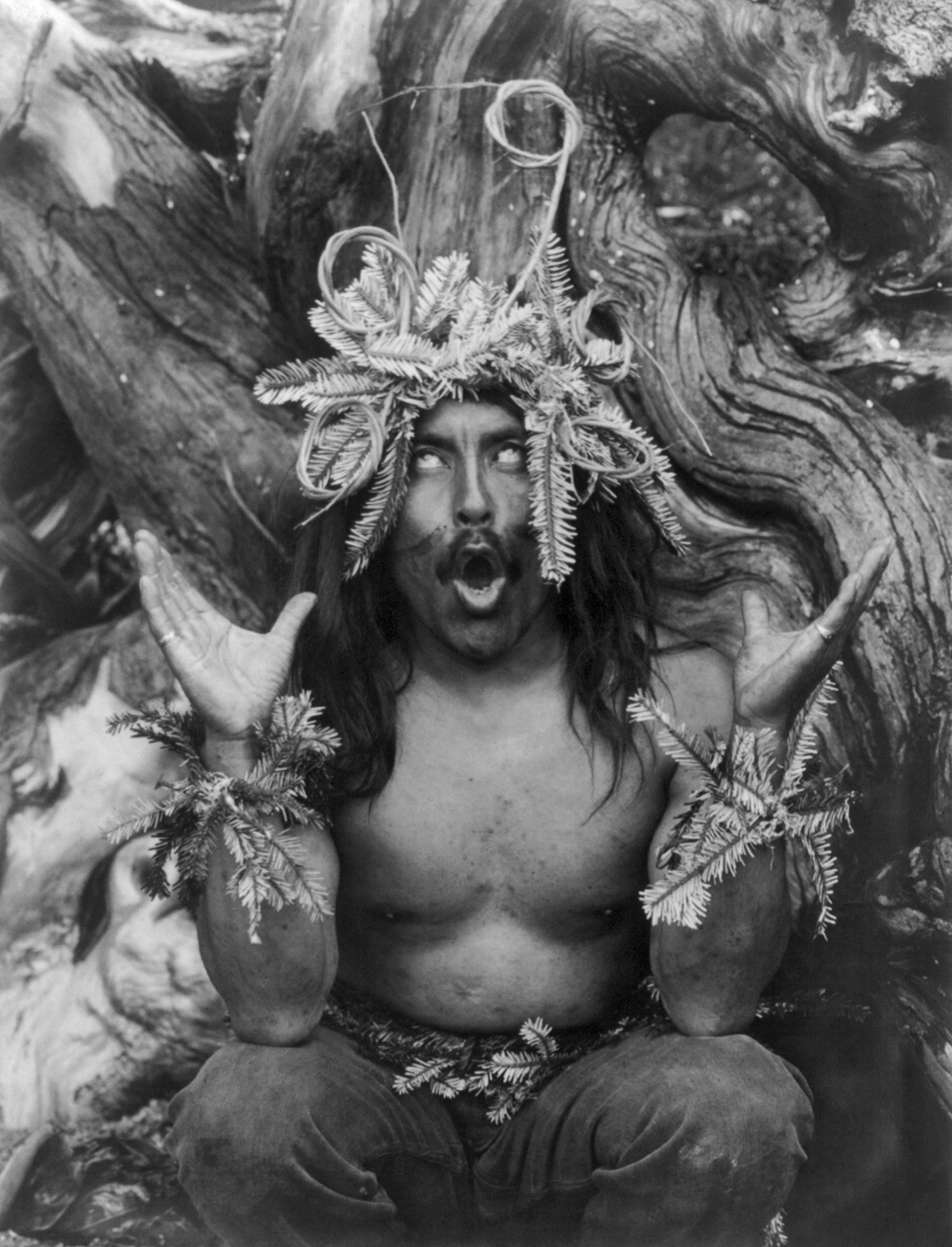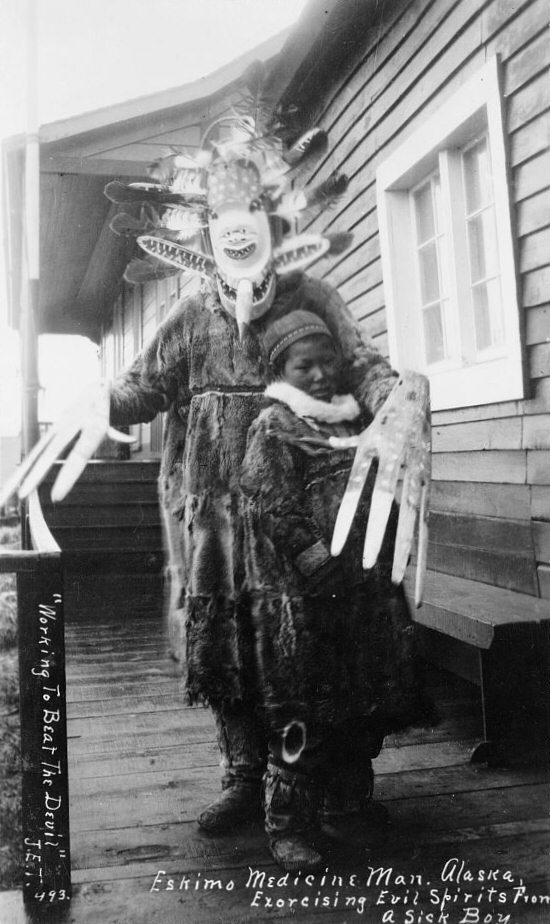 |
| Indian shaman |
According to a June 8 story in the National Post—I need simply cite the title--“Prisons pay more for native spiritual services than all other faiths combined.”
I see several problems here. First, it seems that the Canadian prison service knows only of cartoon Indians. While one quarter of those incarcerated, sadly, are aboriginal, most real Indians are either Catholic or Anglican. Only five percent of federal prisoners identify themselves with “native spirituality.”
This means that we are giving wildly disproportionate funding to the religion of a small minority. In doing so, with taxpayer dollars, we seem to be violating the principle, one our ancestors fought hard for in early Canada's history, of funding no established religion. No problem with governments funding religion—even if you are not yourself a member of any faith group, you must surely recognize that religion serves useful social purposes, and is of value to the society as a whole. We fund, in Ontario, the Catholoic separate schools. But funding must be in proportion to the proportion of the population, or it amounts to an established church.
Consider, too, how you might feel as an aboriginal Anglican or Catholic, seeing all this extra money going to “Indian spirituality.” The message from above seems to be, those above you look more favourably upon, and want you to convert to, native spirituality. Perhaps doing so might give you better treatment in other ways. Perhaps an earlier parole?
 |
| Salish shaman |
Given that “native spirituality,”unlike Anglicanism or Catholicism, has no moral element, is it really even in our general interest to promote this sort of conversion, let alone the obvious injustice?
And those not of native ancestry, for whom converting to “native spirituality” is not a realistic option? Too bad; they are simply second-class citizens, and made by this to understand so. Great thing, for inspiring them to have confidence in the justice system.
On top of this, threre is a further problem. There is a reason why we have no proper name for this thing, that we are forced to refer to as “native spirituality.” There is no such religion as “native spirituality.”
When the first Jesuits came and dwelt among the Indians, they reported back to France that the Indians as they encountered them had no religion. And they were right: in Korea, with a shamanic tradition similar to that of North American aboriginals, local friends insisted to me that shamanism was “not a religion.” That, to them, was a fundamental misunderstanding. Buddhism is a religion. Christianity is a religion. Islam is a religion. Shamanism is not a religion. It is a set of magical practices. It is like going to a fortune teller.
“Religion” literally means “binding.” To have a religion is to take on moral and ritual obligations. This is why we protect “freedom of conscience.” The religious need legal protection: laws must not interfere with anyone's prior religious obligations.
But shamanism, unlike religions, imposes no obligations, any more than using the services of a plumber or a dentist. There are no regularly-held rituals, and nothing that would be identified as “ritual” by a real practitioner. Individuals who consult a shaman might be concerned with being moral, or unconcerned; shamanism itself has no moral teachings. One simply goes to a shaman when one needs something done. He or she claims special expertise in dealing with the spirit world. Accordingly, he can tell you your future, sell you some charm for luck in the hunt or the next examination, put a curse on your enemies, lift a curse on you, perhaps heal you of an illness. All, in the end, practical matters.
 |
| Indian shaman |
Shamans are otherwise not widely beloved or welcome presences, as, for example, a priest or minister might be. They are not moral guides or exemplars, as might be useful in the prison situation. Indeed, if you are an Indian, they are generally avoided if possible. They are a bit of a burden and a risk to have around. They bring spooks. They also sometimes demand obedience to their desires and perhaps regular payment in return for not laying a curse on you, resulting in some loathsome disease.
Accordingly, any authentic shamanist might not thank Prisons Canada for making sure one of their ministers is always around.
Much is made of the “sweat lodge” ceremony as an Indian religious ritual. But this is not a regular observance, like going to church. It is done for health, and usually because you are sick. Not different, in principle, from a Swedish sauna. Putting in a saune might be a good idea, too, but it should then be available to all prisoners, without discrimination.
Other than t his, and no shaman is needed or wanted for this, there are no regular observances or rituals that an Indian shamanist needs his “minister” to perform. They might at times be useful to put a curse on a particular prison guard, or some fellow prisoner. Perhaps causing much strife within the prison—yeah, that ought to help. How badly do we, as taxpayers, want to fund this?
There are, of course, no seminaries for shamans, no ordinations, no governing body. In a real, living Indian community, one managed to support oneself as a shaman by developing a reputation among the other people of your village for effective cures or curses. This works, after a fashion, so long as the usser pays.
So—somebody claiming to be an Indian shaman shows up at the prison gates, demanding payment for his services as a chaplain. How is the prison system establishing his bona fides? Does he first have to demonstrate his ability to make it rain? Or is this just a matter of random handouts?
And then again, there is the awkward matter of animal or even human sacrifice, which shamanism, having no moral dimension, will quite often require. This is something we might not want to encourage.
All of this is probably beside the point, however. Intimations in the article suggest instead that the money is going to native “elders.” Older Indians understood to have a large store, thanks largely to their age, of cultural knowledge.
Certainly less potential for harm in that. But this is not “spirituality.” It is what an oral culture uses instead of books—one must, without writing, depend on the memories of the old for any knowledge of the past. Not clear, then, how this is especially helpful, or why it could not be done far more efficiently, and more equitably for those of other ethnicities, by the novel device of having a prison library.












No comments:
Post a Comment